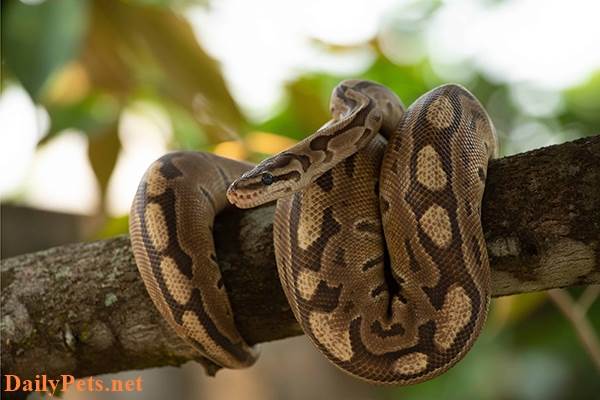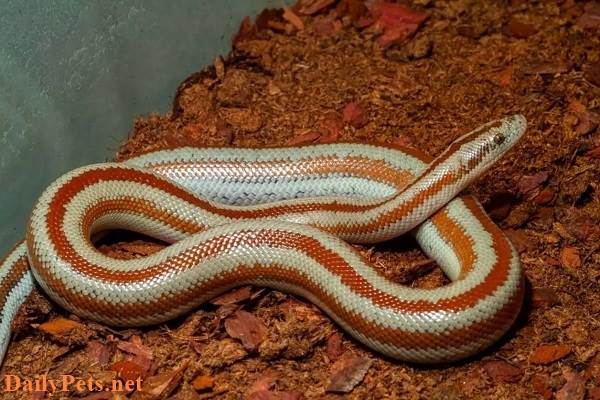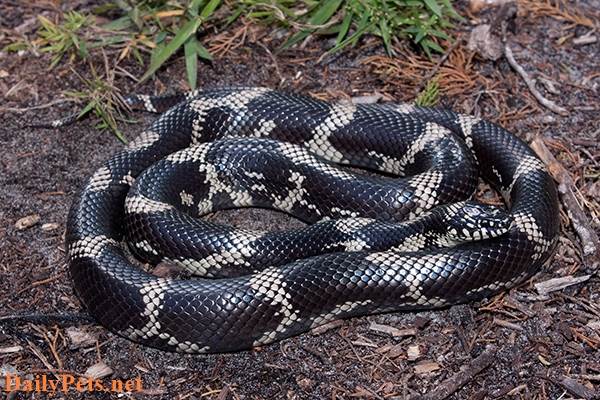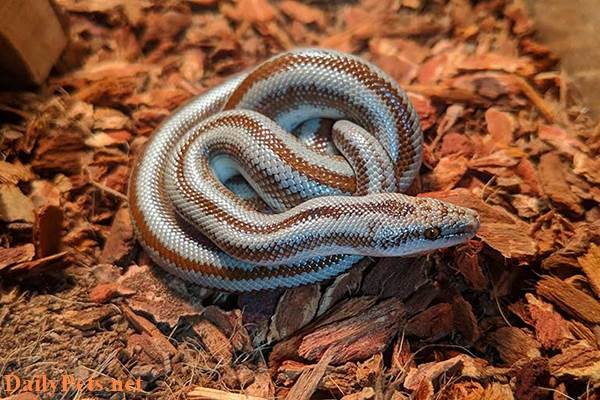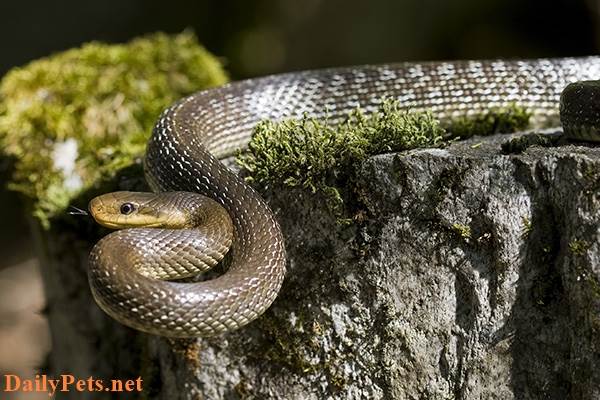They are also considered quite safe to keep as pets.
Should snakes be kept as pets?
Snakes are often discriminated against wherever they appear. People usually scream in horror whenever they encounter a snake. However, this is not the case for most snake species. For some individuals, snakes are beautiful creatures that can become exotic pets and wonderful companions.
Many people think snakes are terrifying. However, contrary to this belief, most snake species are harmless. Among the more than 3,000 snake species living on Earth, only a small percentage, around less than 7%, are capable of causing harm. And within this 7%, most of them don’t live anywhere near humans.
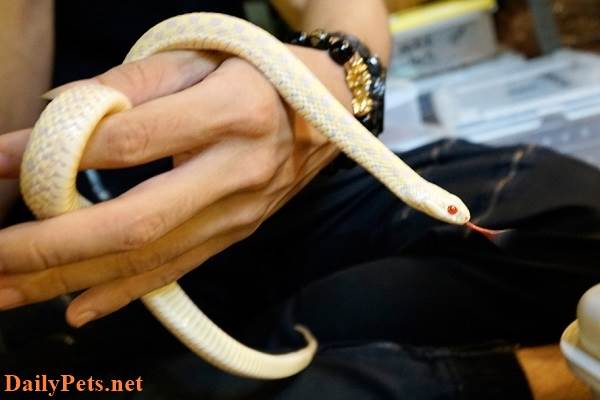
You can keep snakes as pets.
This percentage becomes even smaller when further narrowing the range to pet snakes. In summary, regular people don’t keep highly dangerous snake species as pets. Almost all pet snakes are harmless, and most owners can handle them without fear.
What Makes a Pet Snake Safe?
Consider some factors to determine what makes a pet snake safe. First and foremost is venom. There are many venomous snake species in the world. Notable ones include the rattlesnake, copperhead, and coral snake, but they are not kept as pets. They are banned in many places around the world, and in other places, there are strict regulations.
So, if a snake doesn’t have venom, what’s the only thing you need to worry about? That would be the size of the snake. A larger snake can potentially harm you. However, considering the extent to which a large snake could cause harm, serious injury, or death, a snake would need to be around 15-20 feet tall with a diameter of at least one or two feet.
Nonetheless, it’s important to note that all snake species can bite. However, this doesn’t mean all snake bites are painful. For instance, if a garter snake bites you, you would only notice if you happened to see it happen. Otherwise, you might not even notice it.
Why Are These 6 Snake Species Considered Relatively Safe?
A pet snake is considered relatively safe when it lacks venom, doesn’t bite, or if it does bite, the bite is completely harmless. Size is not intimidating, and the owner can easily raise and care for it, even for beginners.
Below are the 6 suggested pet snake species from DailyPets.net. While there are many other popular pet animals, if you’re considering a pet snake, you can start with these pet snake options:
Corn Snake
The corn snake might be the safest pet snake in the world. These snakes are known for their calm demeanor. They are also small in size and remarkably beautiful.
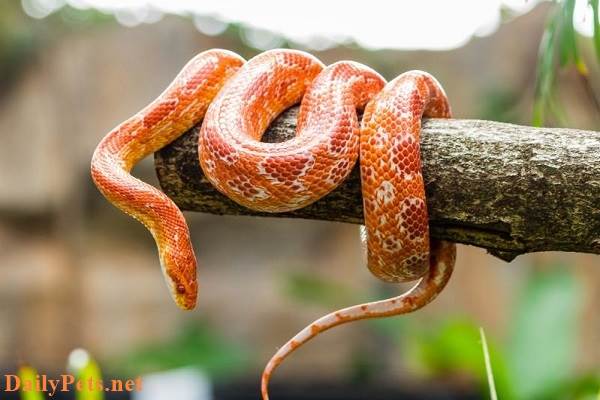
Corn Snake.
The personality of corn snakes is very relaxed and pleasant. This is because they have been bred for a long time. Breeders have selected generations of well-behaved and feasible snakes, resulting in corn snakes with comfortable and pleasant temperaments. Even when a corn snake bites, you’ll feel the bite like a small needle prick and won’t cause bleeding. This is also something breeders do similarly with domesticating dogs.
Furthermore, another plus point for corn snakes is their stunning appearance which captivates people.
Ball Python
There’s a reason ball pythons are popular. They are known for their calm demeanor and slow movement and enjoy being handled. People might even call them cuddly.
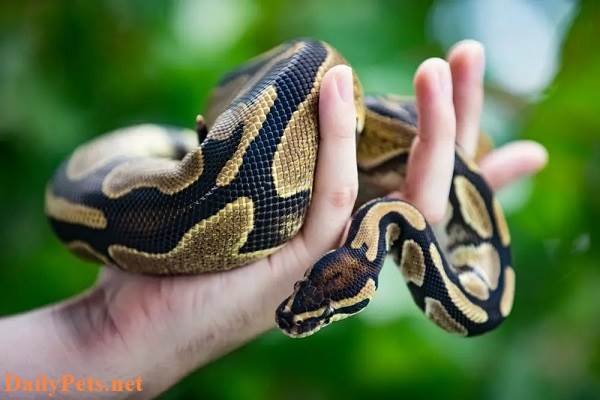
Ball Python.
You might see someone wearing a ball python as a bracelet. These snakes are gentle and don’t bite humans. They can’t cause serious harm to humans, either.
Rubber Boa
The Rubber Boa is a native snake in North America known for its small, docile body, making it suitable as a pet. They usually don’t bite. Rubber Boas are often used in therapy programs for people who are truly afraid of snakes.
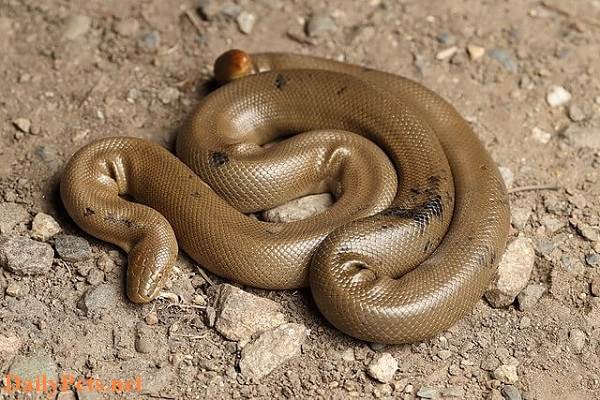
Rubber Boa.
Furthermore, Rubber Boas have a very friendly nature. They may pay attention to humans or prey animals in the wild out of curiosity. Sadly, this often leads to their death in the wild but makes them perfect pets.
Kenyan Sand Boa
The Kenyan Sand Boa might be the cutest snake in the DailyPets.net suggestion list. Reptile enthusiasts also love it. These snakes come from the deserts of East Africa and spend their days hidden under sand.
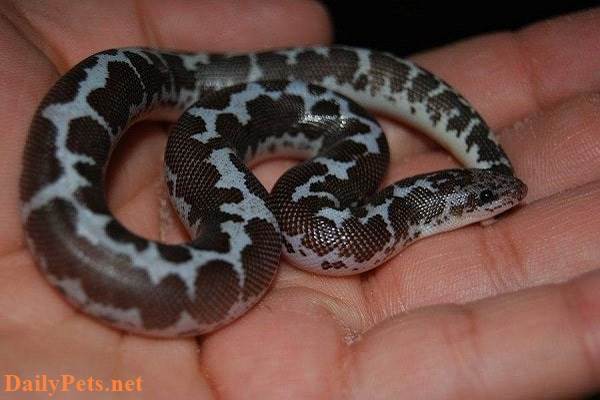
Kenyan Sand Boa.
Kenyan Sand Boas have cute faces and gentle dispositions. Basically, they are cute pets and can’t cause serious harm. They are short snakes, don’t grow large, don’t attack, and can’t seriously harm you even if they try. They are also easy to raise and care for. These are fantastic snakes for those who are scared of snakes.
Rosy Boa
The Rosy Boa is another great snake for those who don’t want to get bitten by a snake. Unlike all the snake species suggested by DailyPets.net, these Rosy Boas don’t have venom. They only reach a maximum length of 3 to 4 feet. They have beautiful colors that make them perfect exotic pets.
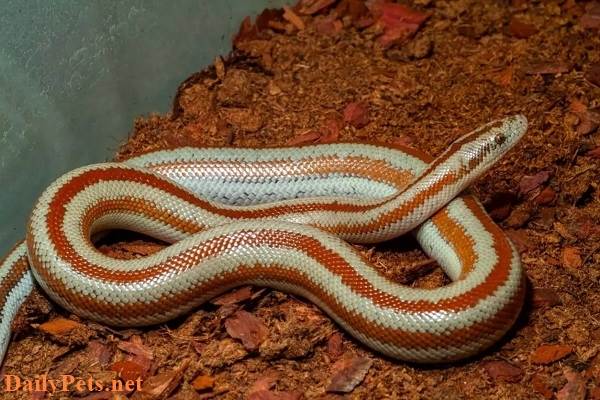
Rosy Boa.
California Kingsnake
The California Kingsnake is another wonderful snake for those who are not willing to get bitten by a snake. These California Kingsnakes don’t have venom like all the snake species in DailyPets.net’s suggestions. They only grow to a maximum of 3 to 4 feet. They have a great temperament and are easy to care for.
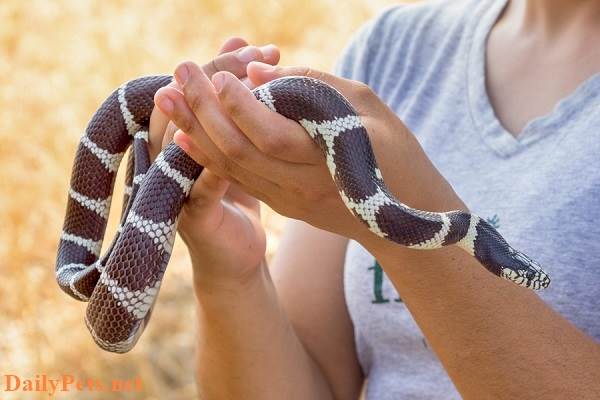
California Kingsnake.
In conclusion, while snakes might evoke fear in many people, there are several pet snake species that are considered safe and suitable for those interested in keeping them as pets. These snake species are generally non-venomous, have manageable sizes, and have calm dispositions, making them great options for beginners and experienced reptile enthusiasts.
